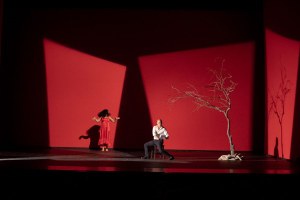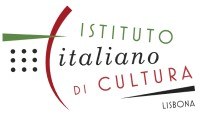The Portuguese premiere of "Amore" by Pippo Delbono
After having been on stage at the Temporada Alta international theatre festival in Girona on last November 5, Pippo Delbono makes his debut at the São Luiz Theatre in Lisbon with Amore, the show created in Portugal, a country with which the author, actor, and director admits to having “a special sentimental connection”.
In fact, Portugal is the starting point, the place where his search begins following in the footsteps of a word: "love", which is not only a feeling, but also a state of the soul. And the musical and poetic journey of the performance will cross over an outer geography – Portugal, Angola, Cape Verde – and an inner geography, the one of the strings of the soul “that resonate at the slightest beat of life”.
"This show - says Pippo Delbono - presents a double vision of love. On one side – where we hear the voices of the texts – we, each one of us, look for that love, trying to run from the fear that attacks us. In this journey we try to avoid that love even if we acknowledge the constant yearning we have for it; I look for it and I yet want it, too. And this is exactly what is scary. But this path – paved with music, voices and pictures – may lead us to a reconciliation, to a moment of peace where that love can manifest itself beyond any fear."
The show is staged in the Portuguese capital from November 8 to 12 (08:00 pm) and will be also staged in Aveiro on November 15 and 16 at the Teatro Aveirense (09:30 pm).
Moreover, the Teatro São Luiz in Lisbona has organized the talk Pippo, Lisbon, Amore (November 10, 09:20 pm).
Portuguese artists from different disciplines collaborated in the creation of this new international co-production by ERT, including Pedro Joia, well-known guitarist and composer, fado singer Miguel Ramos, and production designer Joana Villaverde, as well as Angolan writer and musician Aline Frazão. Author and theatre critic Tiago Bartolomeu Costa will interview Pippo Delbono on the path that led to Amore.
The performances are organized by the Teatro São Luiz in Lisbon, the Teatro Aveirense in Aveiro, and the Italian Cultural Institute in Lisbon, under the patronage of the Embassy of Italy in Portugal.



